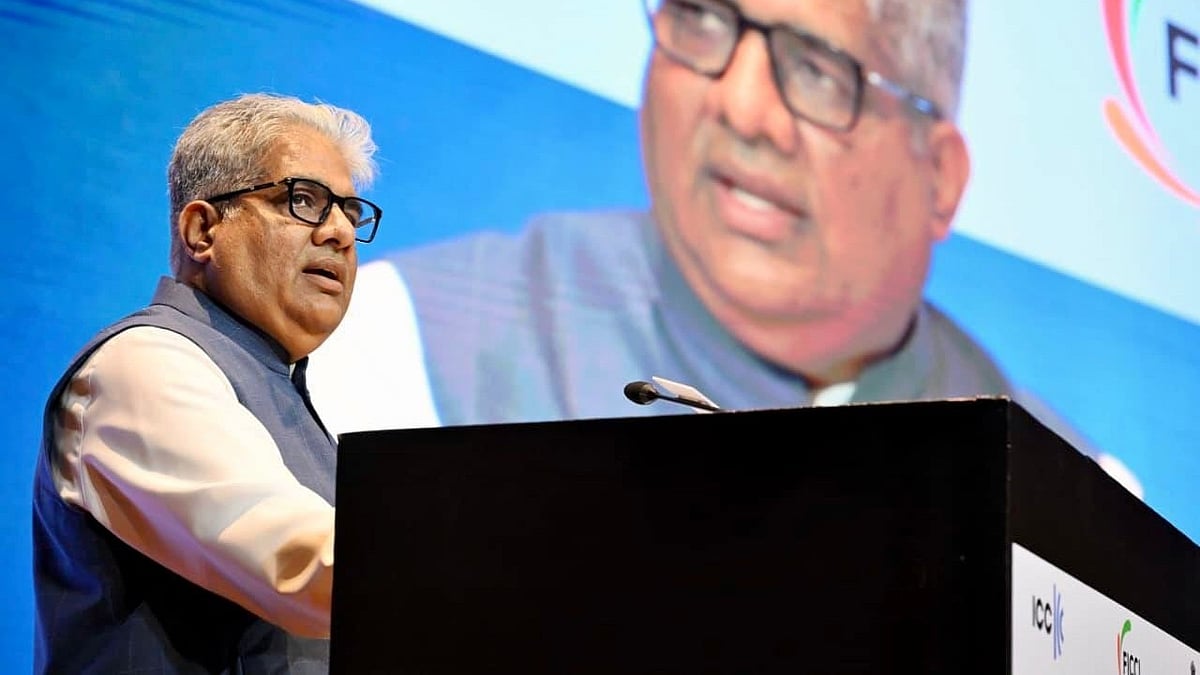Environment
Climate finance “make-or-break issue” says environment minister Bhupender Yadav
Supporting application of the Paris Agreement, he said developed nations have a “moral responsibility to support the Global South” in transitioning to a low-carbon economy

Union environment minister Bhupender Yadav on 11 September, Thursday, stated that climate finance is the "make-or-break issue for climate action" and emphasised that developed nations have a "moral responsibility to support the Global South" in transitioning to a low-carbon economy.
Speaking at an event hosted by the industry body FICCI (Federation of Indian Chambers of Commerce & Industry), Yadav said India would require over USD 10 trillion by 2070 to achieve its net-zero target. He urged global financial systems to mobilise private capital while ensuring transparency, accountability and affordability.
Published: undefined
"Public money cannot and would not be sufficient to address the scale of the problem at hand. Fiscal space is tight. The role of public budgets and concessional finance is to de-risk, crowd in and set rules that unlock private capital," he said.
Yadav added that climate finance should be seen as development finance.
"Clean power, efficient cities, climate-smart agriculture and resilient infrastructure are not add-ons; they are the foundation of energy security, food security and industrial competitiveness," he said.
Citing recent initiatives, he said sovereign green bonds have attracted investor confidence, and that regulators such as the Reserve Bank of India (RBI) and the Securities and Exchange Board of India (SEBI) are working to ensure accountability and credibility in green financial instruments. Blended finance mechanisms, he noted, are being used to support areas including renewable energy, electric mobility, waste-to-wealth projects and nature-based solutions.
Yadav expressed strong support for the application of Article 6 of the Paris Agreement, describing it as a mechanism that facilitates international cooperation and can enable financial support for developing countries.
Published: undefined
He explained that Article 6 provides for the trading of carbon credits through UN-supervised mechanisms and bilateral arrangements. "Article 6 transactions, when aligned with nationally determined contributions and long-term strategies, provide both results-based payments and an incentive for innovation," he said.
According to the minister, high-integrity carbon markets with transparency and proper accounting could direct significant funding towards climate initiatives that might otherwise remain unfunded.
He described Article 6 as a critical route for mobilising resources for climate mitigation, while also fostering technology transfer and capacity building.
Referring to global financial commitments, Yadav said, "The Global North must rise to hold its promises for the greater good of Planet Earth", and pointed out that the UNFCCC target of USD 300 billion by 2035 looks to be inadequate.
He cautioned that insufficient financial mobilisation could leave "our future generations into a future of greater climate uncertainty, resource scarcity and environmental degradation".
Yadav also spoke about India’s Green Credit programme, which he said is channelling private capital into ecological restoration efforts following its revision last month. The RBI, he added, estimates that India will need to invest around Rs 85.6 trillion by 2030 to bring its industries in line with climate standards.
Published: undefined
"Green finance is not a niche. It is the backbone of resilient, competitive economies," he said, adding that financial technology, digital platforms and artificial intelligence can make green financing more transparent, efficient and scalable.
He further noted that green finance must be inclusive. "It must put people at the centre by creating decent jobs, protecting the vulnerable and ensuring access for MSMEs, farmers and marginalised groups."
Concluding his remarks, Yadav said, "A failure to finance our green transition is a failure of our moral duty. It would be an acceptance that our generation's comfort is more important than their survival: a notion that runs contrary to Indian values and principles."
Published: undefined
Follow us on: Facebook, Twitter, Google News, Instagram
Join our official telegram channel (@nationalherald) and stay updated with the latest headlines
Published: undefined